Vuelta a Espana in the bag, Simon Yates hints at Giro d'Italia redemption
Briton overcomes self-doubt, finds flawless form on final mountain stage
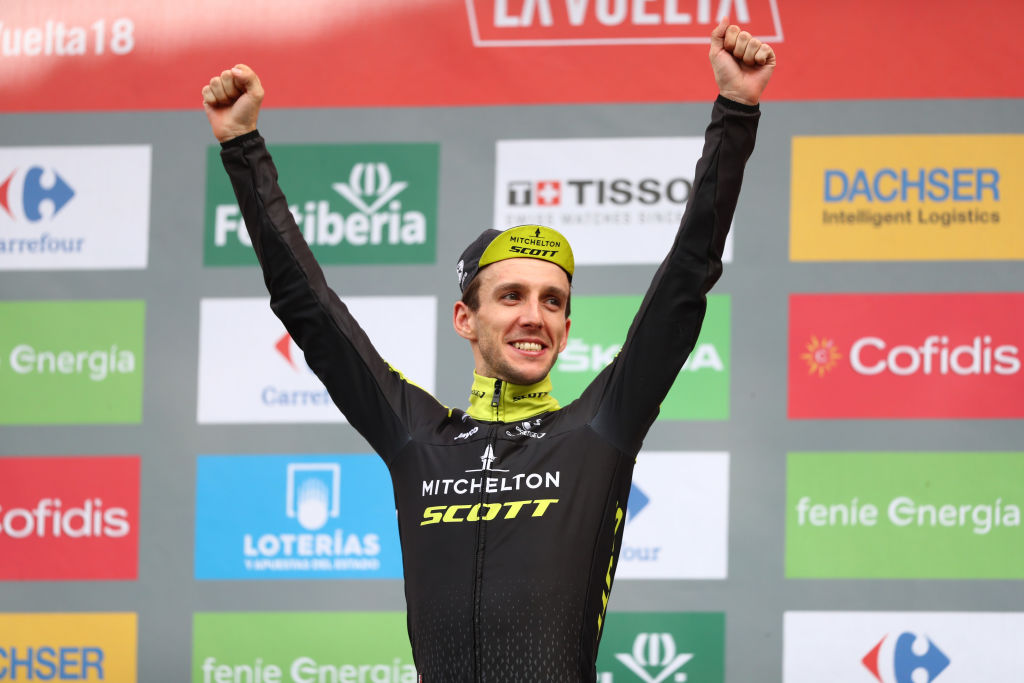
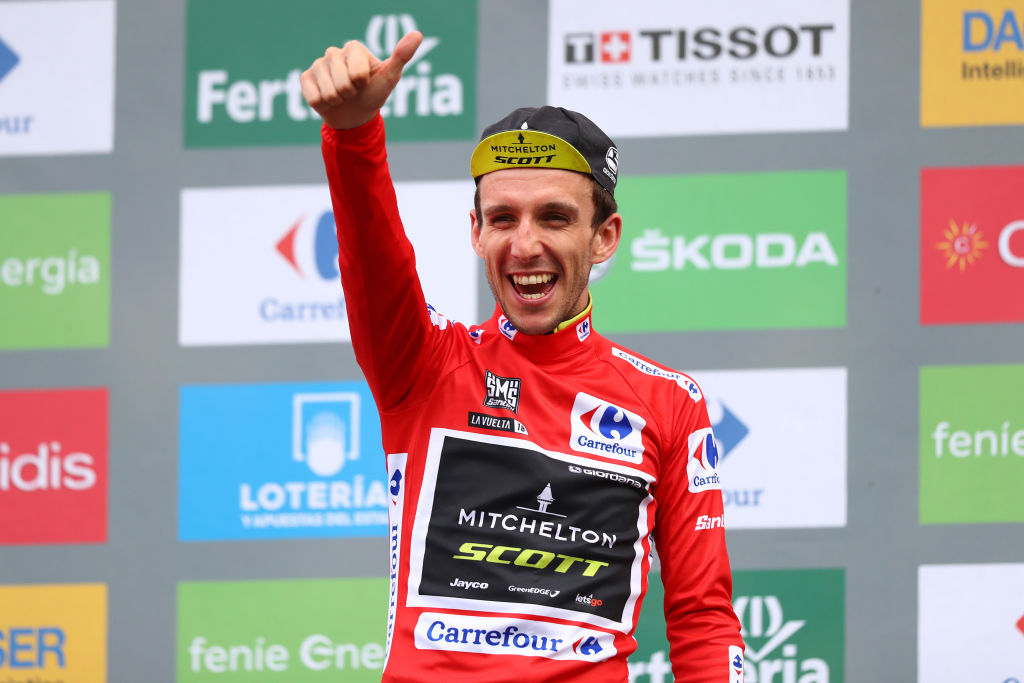
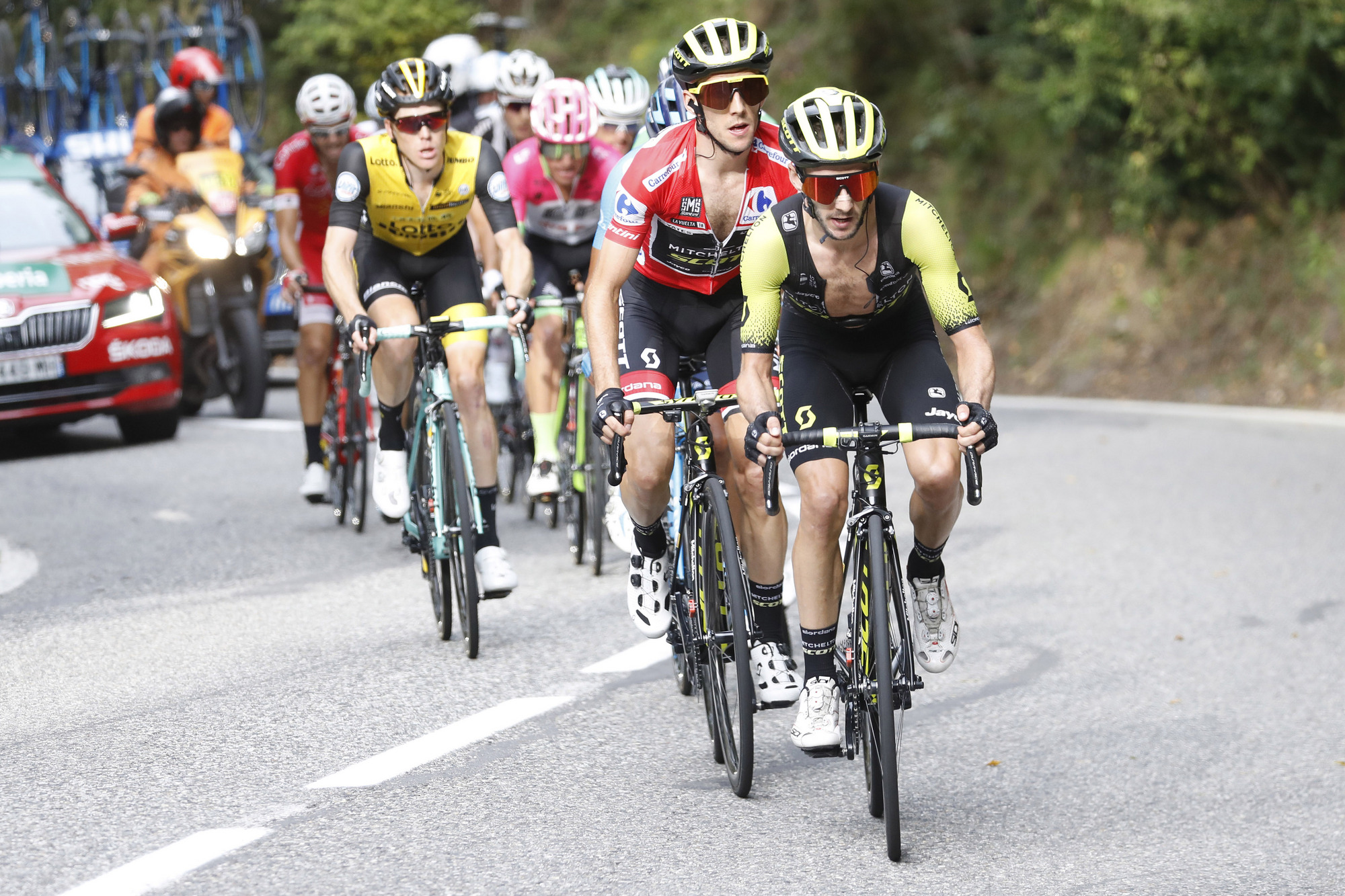
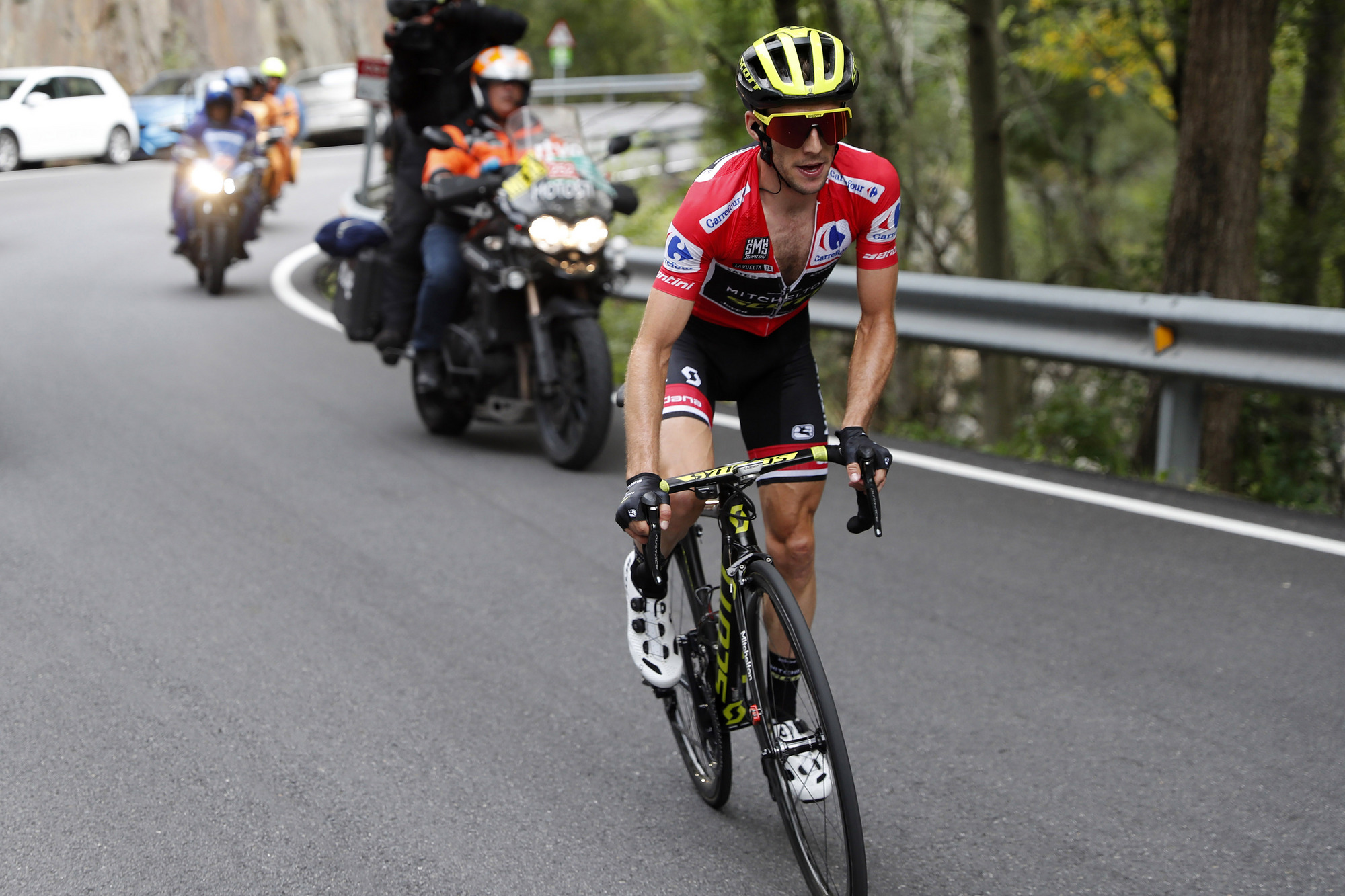
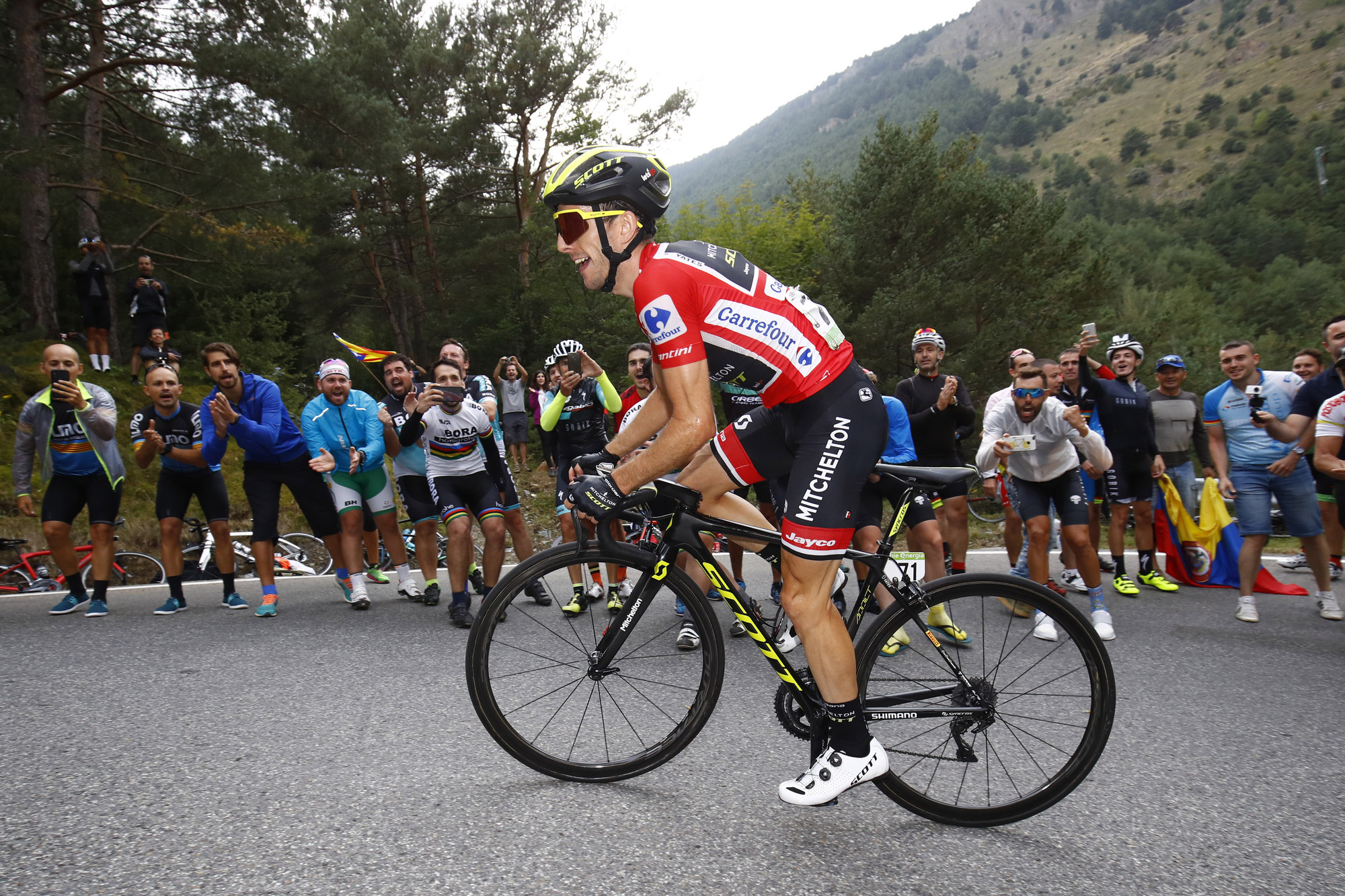
Even with an overnight margin of one minute and 38 seconds, Simon Yates (Mitchelton-Scott) was never confident of sealing the Vuelta a España title on the final meaningful day of racing in Andorra. How could he be, after what had happened at the Giro d'Italia?
"Yesterday I had a good ride but I truly didn't believe I could pull it off," he revealed as he sat down for the Vuelta winner's press conference, which traditionally takes place the day before the ceremonial final stage into Madrid.
"I was nervous at the beginning because you just never know, on a stage like today, what could happen."
Indeed, despite Yates' seeming superiority, a stage that crammed six climbs into 97 kilometres at the very end of a Grand Tour always had the potential for a late plot twist. But the 26-year-old, showing that attack is his best form of defense for a second day in a row, only extended his lead as Alejandro Valverde fell away on the final climb and the drama was reduced to the battle for the minor podium positions.
"It was a ferocious day, from the very beginning," Yates said, "but my team were fantastic. I had support until the very last moment with Adam. At that point I was more confident of keeping the jersey. It's just a really unbelievable day."
Yates will have his day in the sun when the Vuelta finishes in Madrid on Sunday, but there's a sense that this victory is only the start. A key question on everyone's minds was what comes next. Would head for the Tour de France next year as one of the big favourites, or would he replicate the Giro-Vuelta approach?
"I've not put a lot of thought into my next plans because I've just been concentrating on here and also the Worlds," he said, though he did reveal more than expected.
Get The Leadout Newsletter
The latest race content, interviews, features, reviews and expert buying guides, direct to your inbox!
"Actually my gut feeling is I'd like to go back to the Giro. I have unfinished business there."
Lessons learned
Yates' riding style at this Vuelta has been nothing if not bold, but his lack of self-belief was understandable given his spectacular collapse at the Giro. Having won three stages in swashbuckling style, he led the race at the start of stage 19 but was down in 21st place by the end of the race two days later.
At this Vuelta he was always worried about lightning striking twice, but had learned his lessons and taken every step to minimise the risk.
"There's no real big secret to it," he said. "It's just about staying calm in the moment that calls for it, and not being too aggressive. Everyone feels good in the first week because everyone has prepared well. For me that was really the biggest difference. I arrived at the second rest day… I wouldn't say fresh, but compared to how I was feeling in the Giro it was a different league. I think that was where difference was made. We made the right calls on the road when needed, not being too aggressive, that's really all I think was the difference."
You'd be forgiven for thinking you'd misheard Yates. Not being too aggressive? Granted, it wasn't quite the gung-ho Yates of the Giro, but it was still one of the most attacking Grand Tour performances in recent memory.
The modus operandi for most Grand Tour leaders – even those who have earned their lead through aggression – is to mark their nearest rivals and ride conservatively as the race nears its conclusion. Yates didn't need to attack 10km from the top of the Coll de la Rabassa on Friday – even if his lead was only slim at that point – and much less on Saturday, but he doesn't seem to know any other way. He doesn't seem to have a back foot.
"For me personally, it comes back to more of a mindset thing," he explained. "When I find myself on the defensive, it's quite hard, mentally, to react to people. You never feel like you have the edge or you get the jump, or you surprise anyone. But when more you're more aggressive, and you're attacking, you get that little bit of momentum, you have that bit of a jump, that bit of surprise, and it makes a big difference. So it's more of a mindset thing than a physical thing."
Yates' rise
Simon Yates is a Grand Tour champion at the age of 26, yet he still describes his rise to the top of the sport as "a long process".
It was one that coincided serendipitously with the current boom in British cycling. It has hardly escaped anyone's attention that, after Chris Froome's and Geraint Thomas' respective victories in the Giro d'Italia and Tour de France, this is the first time that the year's three Grand Tour champions have come from three different riders of the same nationality.
Yates came through 'the system', as it were, as part of the British Cycling federation's Academy Programme. Its primary focus being the track, he became points race world champion in 2013, but, having already won stages at the Tour de l'Avenir, it was clear his future would lie on the road.
Interestingly, his twin brother Adam opted to eschew the British Cycling path and raced instead on the road in France as an under-23. Different routes, but a similar outcome; the pair have matched each other almost stride for stride so far in their professional careers.
Team Sky might have seemed an obvious choice, given the team was set up to mould British Tour de France winners, but they were reportedly only interested in Simon, and both signed for Mitchelton-Scott (then-Orica) in 2014, where their insistence they'd enjoy more opportunities has been more than backed up.
Simon Yates caught the eye with a string of impressive results in week-long WorldTour races in 2015, while in 2016 he won a stage and finished sixth at the Vuelta, though that season was shadowed by a doping ban for an asthma drug, albeit one that the UCI stated was 'non-intentional'.
In 2017 he made his Tour de France debut and finished seventh overall with the white jersey of best young rider, but in 2018 he has made the biggest jump of his steady progression so far in emerging as a rider capable of winning Grand Tours – and in style.
"For me personally it has been a very long process. I don't know what year it was or when exactly, but there was huge increase in funding for cycling in Britain, and that's really when I started my cycling career, when I was much younger, and I came through the British system until I turned pro," Yates said.
"I always had great support, I was always improving slowly until this moment. Of course, the last four years, since I turned pro, the team and myself have had the aim of trying to win a Grand Tour. That was reason I signed for the team – because I believed I could do it and they also wanted to develop around the guys who signed that year. And we've finally managed to do it. it's a really incredible achievement."
Indeed, Mitchelton-Scott started out in 2012 as GreenEdge and existed on a diet of team time trial wins and one-day results. Their Grand Tour focus was limited to hunting stage wins, but since they signed the Yates twins along with Esteban Chaves, they've undergone something of a metamorphosis, letting riders like Michael Matthews and Caleb Ewan leave in order to build a team that can win Grand Tours.
"Everyone had their part to play. We as team have really grown, as an orgnaisation, to where we are today," Yates said.
"For me personally, my coach made the biggest difference. He lives here in Andorra. He's taken a guy who was a bit rough around the edges and basically, we've managed to win the Vuelta. Definitely a lot of congrats go to this guy because he really helped me in the places where I've struggled. As an organisation we've really grown, even this year from the Giro to here, it's been a big change. Long may it continue."
Patrick is a freelance sports writer and editor. He’s an NCTJ-accredited journalist with a bachelor’s degree in modern languages (French and Spanish). Patrick worked full-time at Cyclingnews for eight years between 2015 and 2023, latterly as Deputy Editor.
